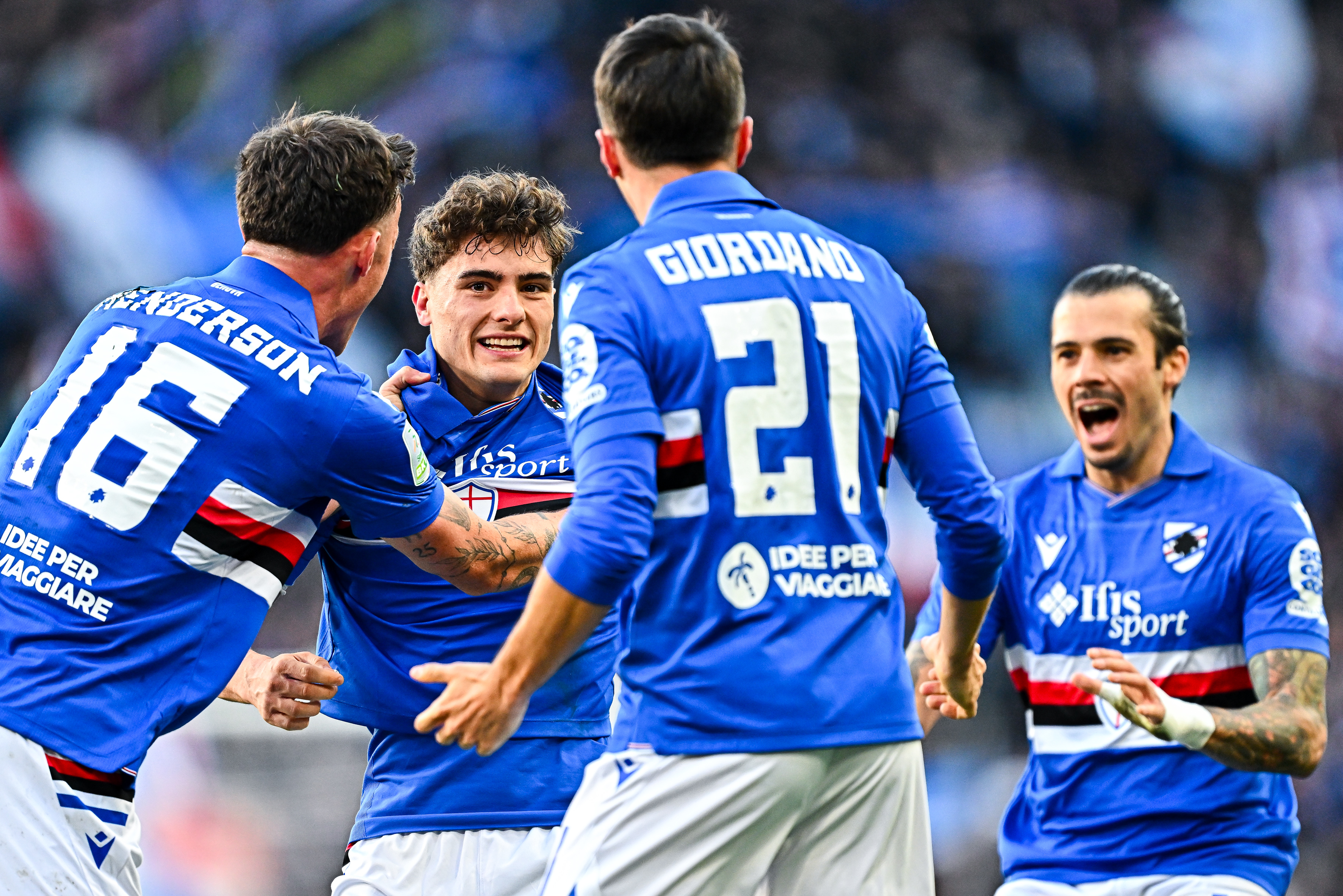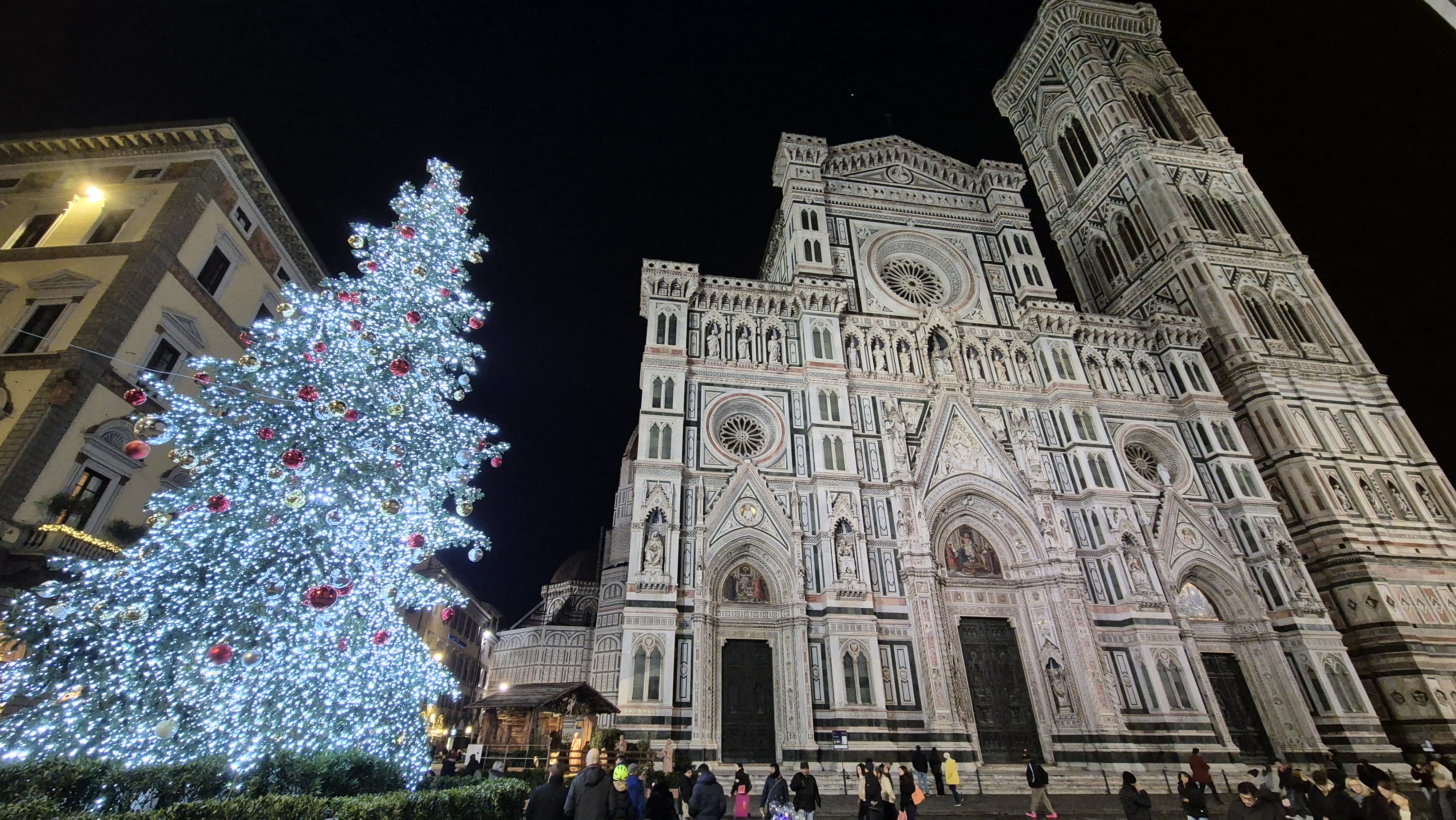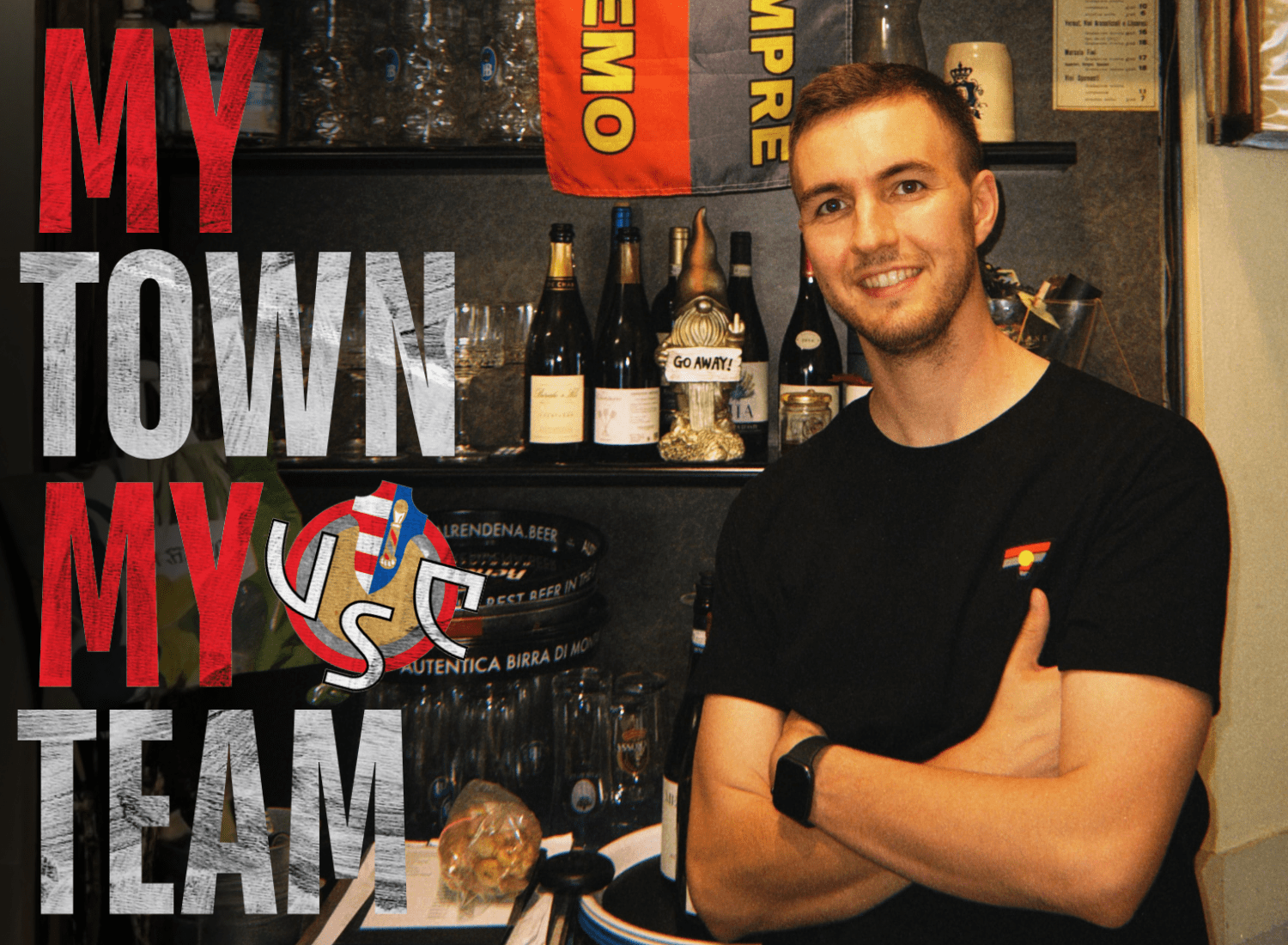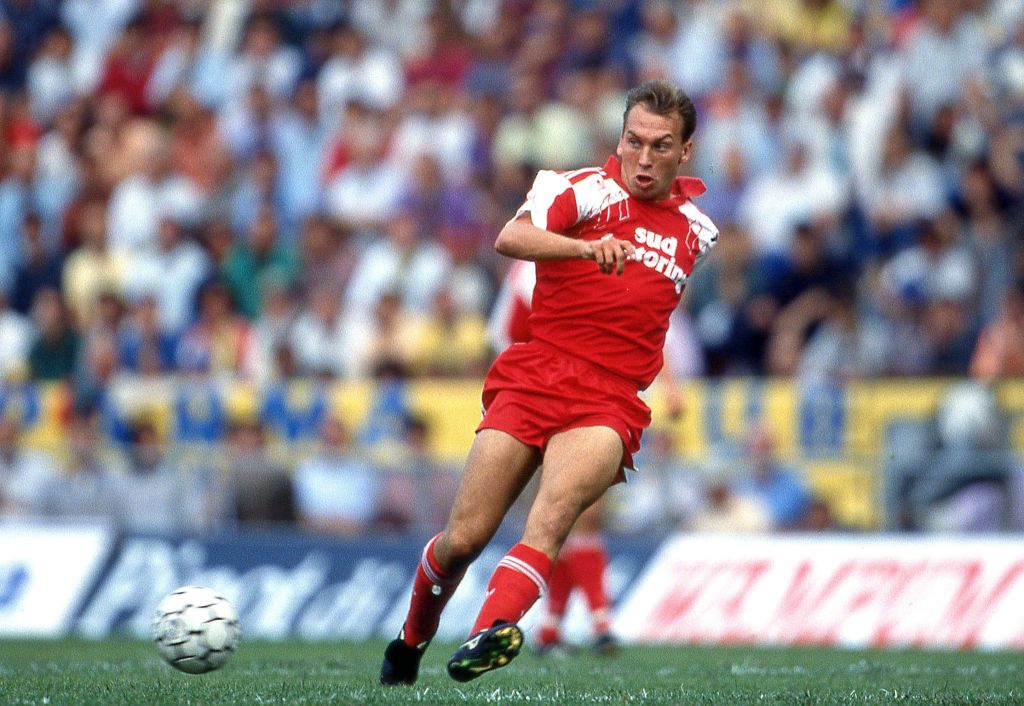
How David Platt Went From “The Maradona of Bari” to Sampdoria Icon
By Dan Cancian
During his Football Italia prime, it would have been a tall order convincing David Platt that Sampdoria and Bari – two of his former sides – would one day meet with both clubs struggling at the bottom of Serie B.
But the Blucerchiati and Galletti head into tonight’s clash at the Stadio Luigi Ferraris in 18th and 19th place in the Italian second tier, with just two points between them after three matches.
One of English football’s best exports to Italy, Platt’s breakthrough moment on Italian soil came before he’d even signed for a Serie A club, as he scored England’s dramatic extra-time winner against Belgium in the quarter-finals of Italia 90.
He returned to the Peninsula the following summer, signing for Bari from Aston Villa for £5.5m and receiving the captain’s armband upon arriving in Italy.
“The Maradona of Bari”
Platt’s arrival was a statement of intent for Bari, who had returned to Serie A in 1989 after a three-year absence and embarked on a series of eye-catching signings under ambitious owner Vincenzo Matarrese – whose son, Salvatore, would head the Italian FA between 1987 and 1996.
The Croatian duo of Robert Jarni and Zvonimir Boban arrived in Bari along with Platt from Hajduk Split and on loan from AC Milan respectively, while future Socceroos boss Frank Farina joined from Club Brugge.
Platt announced his arrival in style, declaring in his opening press conference that he wanted to become the “Maradona of Bari”.
And the Lancastrian lived up to the hype, scoring 11 goals in 29 Serie A appearances – a staggering total, considering his team netted only 26 goals as a whole – but Bari were relegated at the end of his solitary season at the San Nicola.

Sold to Juventus for £6.5m in the summer of 1992, Platt arrived in Turin as part of a flurry of new signings that included Gianluca Vialli, Andreas Möller, Dino Baggio and Fabrizio Ravanelli.
Juventus had shown interest in the midfielder prior to his move to Bari, but ultimately decided against signing the England international.
“Genoa had a couple of sniffs, Juventus and Sampdoria were interested, but there was a fear of English players from the big clubs in Italy because they had their fingers burnt in the past,” Platt reflected years later.
Platt won the UEFA Cup with Juventus, but struggled to establish himself in the Bianconeri’s star-studded cast and was offloaded to Sampdoria the following summer for £5.2m.
How Roberto Mancini convinced Samp to sign Platt
The Blucerchiati had chased the England international for two years, deploying their talisman Roberto Mancini – under whom he’d later work at Manchester City – as their chief recruiter.
“We’d played Sampdoria a few times and I’d faced Robbie,” Platt said.
“But I didn’t know him and he’d tracked my number from somewhere. He said: ‘I know you’ve got a good relationship with your president, I’m sure you could push through a move to us.”
And when the deal eventually came to pass, Platt felt it was all down to Mancini’s insistence.
“I’ve always suspected I wasn’t on Sampdoria’s list that summer, because their president wanted to sign Marco Osio from Parma but he ran the transfer list past Robbie [Mancini], who had much of the say. I soon made the move,” he explained.
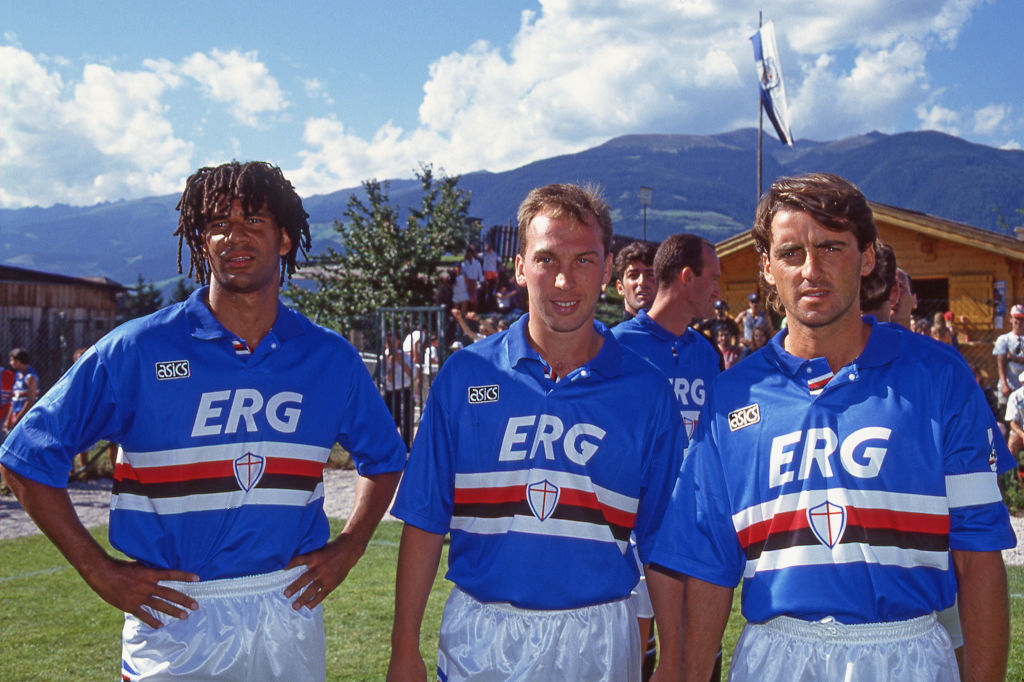
A Sampdoria legend
The Englishman blossomed in Genoa under the tutelage of the late Sven-Goran Eriksson.
Deployed in midfield alongside Ruud Gullit, Attilio Lombardo and Vladimir Jugovic, Platt scored 21 goals in 72 games in all competitions and helping Sampdoria win the Coppa Italia in 1994.
And the 58-year-old has nothing but fond memories of his stay in Genoa.
“As soon as I got here, I realised I was in the right place,” he told Sampdoria’s website last year.
“I never had so much on a football pitch. Winning the Coppa Italia is an unforgettable memory.”
The Coppa Italia hitherto remains Sampdoria’s last piece of silverware and Platt left Italy the following summer, signing for Arsenal for £4.75m and winning the double in the last of his three seasons at Highbury.
He would return to Italy sooner than anyone anticipated, taking charge of a struggling Sampdoria in December 1998, only to leave the club after six games, following three defeats and three draws.
But while his experience in the dugout may have been a fiasco, Platt is best remembered for his exploits on the pitch.
And for him, it all started with that dramatic finish in Bologna.
“If I hadn’t scored that goal, I might still have ended up playing in Italy, but, realistically, I’m sure it was the catalyst,” he said in 2010.
“Italian clubs were looking for international names and, before that goal, I was only really known as a club player with Aston Villa.”
Related Articles
Related Articles
The Serie B season reaches halfway when the action returns after the winter break, with more live matches to look forward to on DCTV.
Florence is a dream destination year-round, but visiting during the winter months offers a completely different and magical experience.
We get a local take on what's hot in Cremona - where to eat and drink, sights to see and handy hints that might not be in the tourist guides.


